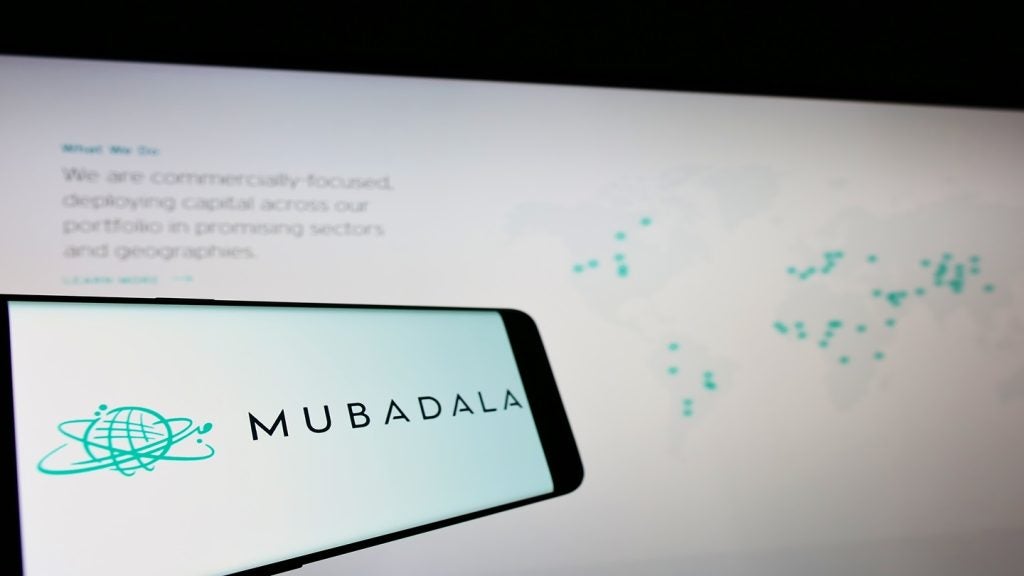Developing meaningful and lasting relationships with the next generation of wealthy clients, before the transfer of wealth actually takes place, is a priority for private banks. John Schaffer speaks to industry experts about current next gen. issues and how wealth managers are approaching the young and the wealthy
The future generation of wealthy individuals are a significant potential client segment that every private bank wants to impress, engage and retain.
For private banks and wealth management companies, Next Generation strategy is becoming increasingly important, leading to a customised and dynamic approach.
However, private banks are also facing several challenges with this client segment. In an environment of fierce competition, how are wealth managers differentiating themselves to keep the Next Generation interested?
How well do you really know your competitors?
Access the most comprehensive Company Profiles on the market, powered by GlobalData. Save hours of research. Gain competitive edge.

Thank you!
Your download email will arrive shortly
Not ready to buy yet? Download a free sample
We are confident about the unique quality of our Company Profiles. However, we want you to make the most beneficial decision for your business, so we offer a free sample that you can download by submitting the below form
By GlobalDataWealthy baby steps
Knowing that children of their high net worth (HNW) and ultra high net worth (UHNW) clients will need assistance to manage the wealth that they are set to inherit, private banks aim to get involved in the lives of the Next Gens from a young age. It is in the interest of both heirs and wealth managers to make contact before the transfer of wealth happens.
Wealth managers have contrasting views on how early a child should be involved in the wealth management process, as some feel the information could be an "unnecessary burden" on the children.
Duncan MacIntyre, head of Coutts private office, says that Coutts involve the next generation at "quite an early age". The private bank aims to instil the family values of its clients through consultations. MacIntyre tells PBI:
"We use philanthropy as our first stage of introducing children to money. Many of our clients will establish charitable foundations or indeed give money directly to charities.
"From quite a young age, we see children of our clients giving money to charities they care about and then thinking about the impact they can have. I think that is a good way of starting the initial process of thinking about money in terms of the joys it can give you, but also in terms of the responsibilities and difference it can make."
Paul Knox, head of wealth advisory EMEA at JP Morgan Private Bank, suggests that wealthy parents want to involve their children early to make them aware of the responsibilities of inheriting wealth.
"We are seeing parents wanting us to speak to the children at a younger age, maybe even as young as 19 or 20.
"The parents want to make sure their children understand not only about money management, but about their tax responsibilities and why it is important to be orderly around the wealth that they have.
"It might not be that they want to burden children with all the responsibilities of wealth at that stage. But if for whatever reason the child actually has wealth in their own name and responsibilities, then parents do want to make sure that the children understand those responsibilities."
Private banks and wealth managers can influence the Next Gen by providing services such as seminars and networking events for young affluent clients. Coutts organises the Future Leader Programme, directed at 20-26 year old children of the private bank’s wealthiest clients.
MacIntyre says: "We only take a maximum of 30 people through the programme every year and it’s a programme that we do in conjunction with Wharton Business School.
"It’s all about real education and trying to help the next generation with the responsibility of which they will inherit. 20 years old is the first time that we will engage with them directly without their parents being there. The alumni that have been through the programme have found it to be incredibly powerful."
David Wilson, head of strategic analysis group at Capgemini, tells PBI that developments in technology have also benefited the next generation of wealthy individuals in terms of information gathering.
"The one thing that is working in advisors favour is that, even from a very young age, because of the internet and familiarity with technology, younger HNWIs or to be HNWIs are learning about subjects themselves. They arguably could have a higher level of initial foundation knowledge on a different topic, as well as be potentially more reachable in a manner that is more tied to technology as opposed to trying to get them in a room, which may be a bit harder to do."

Digital is the industry ‘blind spot’
In the digital age, mobile apps and social media are key for engagement of the younger generation.
There has been a rise in digital provisions amongst private banks. Credit Suisse, for example, announced its updated private banking app in March 2015 for customers in the Asia-Pacific region. However, the traditional perception of the private banking industry is one that is centred on personal connections with relationship managers (RMs), especially if there is a, existing, long lasting family relationship through multiple generations.
In the case of wealthy individuals where wealth is earned rather than inherited, the loyalty to old wealth management institutions could be questionable.
Wilson tells PBI that digital channels are a "blind spot in the industry".
Wilson makes reference to a Capgemini and RBC report, titled The World Wealth Report 2014, saying: "If you take the current landscape, especially the more mature markets, it is more or less correct that HNWIs like to speak to an advisor face to face.
"However, the blind spot is where it gets transferred to the next generation. One of the things that we found in the world wealth report is that HNWIs prioritise digital capabilities over face to face interaction.
"Two thirds of HNWIs on average said they would leave their firm if they couldn’t have an integrated channel experience that encompasses digital as well as face to face and that rises to 80% for younger HNWIs."
Although there is an assumption that digital channels are aimed at the next generation demographic, a 2014 UBS report titled Think you know the next gen investor?, says that millenials "are actually no more likely than other generations to use online services for key financial advise".
Although there is a clear demand for digital provisions in the wealth management and private banking sector, personal connections are still of paramount importance. Private banking cannot have the same reliance on digital channels as consumer finance.
David Durlacher, head of relationship management at Julius Baer in London, says:
"Technology advances have revolutionised financial services over the past 5-10 years, and Julius Baer is also investing in these developments. But the personal relationship between a client and their RM remains critical, regardless of what technology is used.
"Within our innovation management we follow, of course, fintech developments closely but at the core, people do business with people, regardless of generation. While technology is of genuine importance – perhaps more so for the Next Gen – our main asset at Julius Baer remains our people and their ability to advise, to educate, and to engage."
MacIntyre feels that technology advancement and personal relationships can work hand in hand and are not "mutually exclusive".
He tells PBI: "Actually one enhances the other and makes everyone more efficient.
"If you want to make a payment at midnight you can do it at midnight or you can call our 24 hour banking service. But you might want to have a business meeting about wealth structuring or how to deal with wealth succession. These are value and advisory conversations that are difficult to replicate in a digital medium."
Does disclosure equal successful transition?
Although it is clear that the private banks want to involve the Next Gen from an early age, it is not always the case that the children would need to be given much information about their parents’ wealth.
MacIntyre says: "They [the Next Gen] don’t need to know the details of what their parents have. Its an interesting point of friction because disclosure doesn’t mean that it gives you knowledge or the tools for how to deal with the successful transition of wealth."
Conversely, Knox believes that some disclosure is required for a successful transition to take place. "On the whole, you want to be able to tell your children enough so that the amount of wealth is not a total shock, as and when the time comes for them to take on the responsibility of managing it."
Specific details of parent’s assets can be more significant where there is a family business involved in the transition of wealth. Wilson says: "You want to make sure that there is an aligned family decision about whether that business continues in its current form or whether the child sells out of the business. Then, in which case, how are you going to make it a stable transition for employees and shareholders?"
Earned vs. inherited wealth mindsets
There can often be differences between how different benefactors approach succession planning. Wealthy individuals who are from multi-generational affluent families may feel an obligation to pass the wealth on to their children. The wealth may also be tied up in large family estates.
Where the wealth has been earned, HNWIs may give more of their money away to a charitable cause. In the majority of cases they are likely to set their children up stably, by paying for education and often assisting with the purchase of a property. The affluent individuals who have earned their wealth often also want to instil a sense of entrepreneurial drive into their children.
MacIntyre says: "As a multi-generational inherited wealth, you are the custodians of the wealth and that does bring with it a responsibility to make sure that you’re preserving and looking after it. If you’ve created the wealth yourself you have the right to use it in a more flexible way, because its something you’ve actually toiled to create."
Low Drive
With the expectation of inherited wealth, there is a potential for future HNWIs to have low levels of drive and aspiration. There is also a significant potential for the wealth to be squandered, as in a majority of wealthy families the wealth has been eroded by the third generation.
Knox says: "Low drive has always been a challenge for the wealthy, going back many years to the trust fund generation, where certain beneficiaries had been getting regular payouts and hadn’t had to earn it."
Many of the wealthy benefactors trial an early transition of wealth to their heirs. This allows the parents to monitor how their children deal with the responsibility of wealth before an eventual transition. The process allows for contact with professional advisors and general experience of the wealth management process.
Philanthropy is also a way in which the next generation can be incorporated into the transition process. Philanthropy can instil a sense of family values as well as giving heirs a purpose if they do not have any particular business acumen.
Knox says: "Philanthropy can be a good way of encouraging children to go out and have a think about what causes are important to them, and if they were to have it, giving strategy. Philanthropy is not just about giving, it’s about having a more active involvement in activities and finding out what they feel passionate about."







